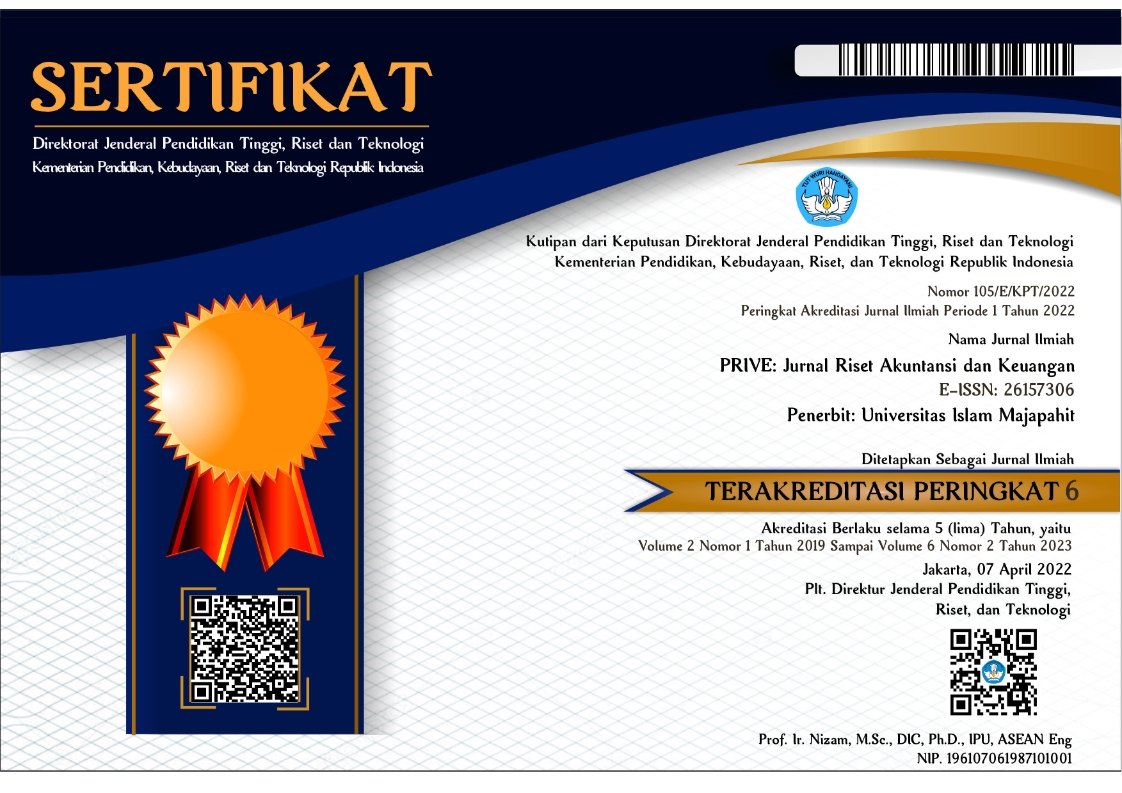Pereduksian FRAUD Akuntan
Keywords:
Fraud, Accountant, Phenomenology, Religiosity, ProfessionalismAbstract
This study aims to uncover the efforts of accountants to reduce fraud. The study uses an interpretive approach with a phenomenological method to see phenomena that are directly related to the symptoms that arise around humans that are organized in the sphere of interaction between the accountant profession, clients, and third parties. The data in this study were obtained from observations in the field by actively participating in each activity, in-depth interviews related to efforts to avoid fraudulent practices with people who are directly involved in the world of accountants. Data analysis was performed using noema and noesis analysis. The results showed that there were three efforts that accountants could make when they were employed, such as religiosity, professionalism, and materialism. After formulating the results based on an analysis of conversations with the informant, it can be concluded that what must be done by the accountant is to combine the three efforts and apply them to the work culture.
Keywords: Fraud, Accountants, Phenomenology, Religiosity, Professionalism
References
Chariri, A. (2009). Landasan Filsafat dan Metode Penelitian Kualitatif. Fakultas Ekonomi Universitas Diponegoro Semarang.
Eagle, L., Dahl, S., Hill, S., Bird, S., Spotswood, F., & Tapp, A. (2013). Social Marketing. London: Pearson Prentice Hall.
Harahap, S. S. (2011). Analisis Kritis Atas Laporan Keuangan. (R. Grafindo & Persada, Eds.). Jakarta: Raja Grafindo Persada.
Krisna et al. (2015). Pengaruh Gaya Kepemimpinan Transformasional dan Gaji Terhadap Kinerja Karyawan Pramu Bakti. E-Journal Bisma Universitas Pendidikan Ganesha Jurusan Manajemen, Volume 3.
Marks, J. (2012). The Mind Behind The Fraudster Crime: Key Behavioral and Environmental Elements. Crowe Howarth LLP.
Moleong, L. J. (2014). Metode Penelitian Kualitatif. Bandung: PT Remaja Rosdakarya.
Mulyana, D. (2003). Metodologi Penelitian Kualitatif. Bandung: PT Remaja Rosdakarya.
Nasirwan. (2011). Telaah Pelanggaran Terhadap Etika Profesi Akuntan: Metode Hermeneutik. Jurnal Keuangan & Bisnis, Vol. 3 No., 49–55.
Saloom, G. (2015). Mengenal Teori-Teori Psikologi Sosial Kontemporer. Jakarta: UIN Press.







